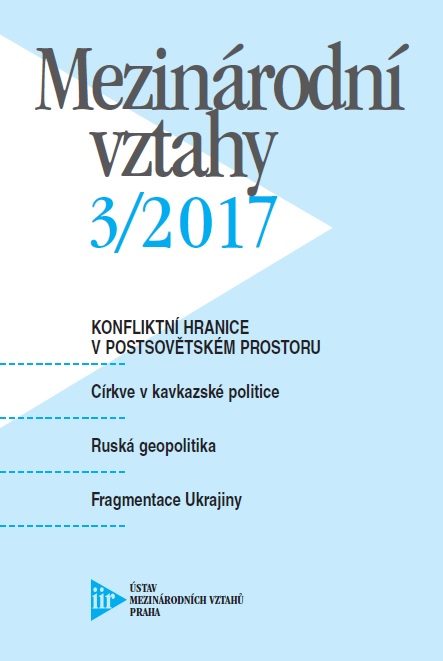Arménie a Náhorní Karabach: asymetrická neformální konfederace
Armenia and Nagorno-Karabakh: an asymmetric informal confederation
Author(s): Vincent KopečekSubject(s): Politics / Political Sciences
Published by: Ústav mezinárodních vztahů
Keywords: de facto states;patron states;kin-state;Nagorno-Karabakh;Armenia;confederation
Summary/Abstract: The article is based on a presumption that the relations between the Armenian and the Nagorno-Karabakh Republic are substantially different from the relations between other de facto states and their patron states. Thus, they can not be explained in the same manner as the relations between Russia and its three “client” de facto states – Abkhazia, South Ossetia, and Transnistria. Also, the concept of kin-state does not seem to be sufficiently elaborated to explain the Armenian--Karabakhi relations. These relations, in comparison with other similar cases, such as the Turkish--North Cypriot relations, feature a whole range of highly specific features, above all the dominance of informal institutions and practices. The article identifies this complex systems of mutual relations and introduces the term informal asymmetric confederation to describe it. According to this model, the relations between the Armenian and the Nagorno-Karabakh Republic are based on a common ethno-cultural framework, mutually mingling political elites and a handful of formal and, most importantly, a whole range of informal mechanisms, which enable both entities to achieve political deals, as well as to mutually influence each other’s internal decision making processes.
Journal: Mezinárodní vztahy
- Issue Year: 52/2017
- Issue No: 3
- Page Range: 47-69
- Page Count: 23
- Language: Czech

